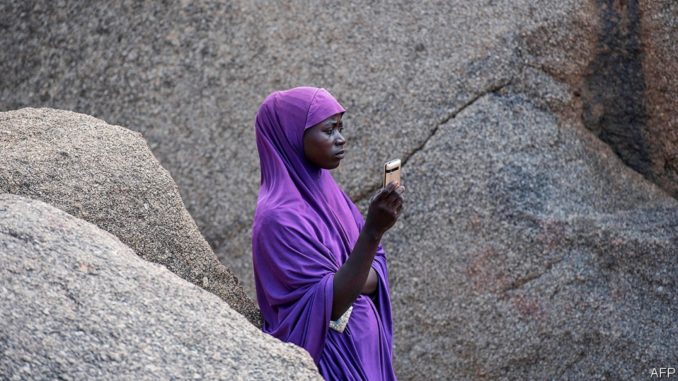
hen i open my phone, I am swamped by news,” says Matthew Stanley, a driver in Abuja, Nigeria’s capital. He scrolls through WhatsApp, a messaging service, bringing up a slick video forwarded into his church group. In a tone befitting a trailer for a horror film, the narrator falsely claims that Muhammadu Buhari, Nigeria’s Muslim president, is plotting to kill Christians. Mr Stanley squints at the tiny screen. “I think it’s fake news,” he says. “I need to check the source.”
If only everyone were so sceptical. WhatsApp, which has 1.5bn users globally, is especially influential in Africa. It is the most popular social platform in countries such as Nigeria, Ghana, Kenya and South Africa. In the West it is common for people to use multiple platforms such as Facebook and Twitter (see Graphic detail) but in African countries, where money is tighter and internet connections patchy, WhatsApp is an efficient one-stop-shop. The ability to leave audio notes makes it popular among illiterate people. But WhatsApp’s ubiquity also makes it a political tool.
END

Be the first to comment